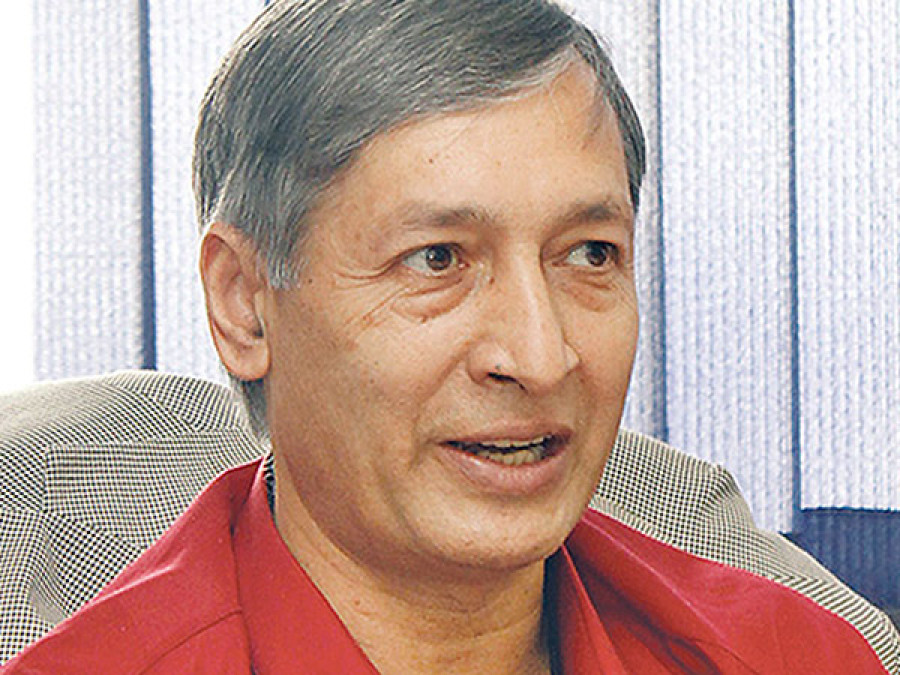Money
Khatiwada’s five years at NRB
Over the five years, Khatiwada played a crucial role in stabilising the country’s financial system.
Prithvi Man Shrestha
As he retired on Thursday after a five-year tenure, it seemed his decision was right.
Over the five years, Khatiwada played a crucial role in stabilising the country’s financial system.
When he entered the NRB on March 19, 2010, the country’s economy was facing balance of payments (BoP) crisis and the banking system was on the brink of collapse due to massive lending to the realty sector.
Also, there were worries that banks and financial institutions (BFIs) would lose people’s faith amid poor corporate governance practices.
Even his critics acknowledge Khatiwada’s resolute measures saved the banking sector from a potential collapse and brought stability, although bankers still complain he didn’t adequately consult them on policy issues.
Former Finance Minister Surendra Pandey, during whose tenure Khatiwada was appointed as the NRB chief, said Khatiwada’s biggest achievement was he helped restore people’s confidence in banking the sector that was going through turbulent times. “He also played a crucial role in sailing out the economy from the BoP crisis,” said Pandey.
When Khatiwada took charge, the BoP deficit had stood at Rs 23.52 billion and the country was forced to take Rs 4 billion loans from the International Monetary Fund to address the problem.
On the other side, BFIs’ reckless lending to the realty sector was creating a risk of a bubble burst. Khatiwada continued the policy of capping realty lending initiated by his predecessor Bijay Nath Bhattari with strict enforcement despite strong pressure from the real estate lobby.
His biggest contribution is perhaps strengthening corporate governance at BFIs and pushing for mergers and acquisitions (M&A) in the financial system.
Nepal Bankers’ Association President Upendra Poudyal said Khatiwada should be remembered for his three major achievements — initiative taken to strengthen corporate governance, cautious measures to avert a possible real estate sector crisis, and measures taken to address liquidity crisis.
Concluding that the majority of the crisis-ridden FIs were led by executive chairmen, the central bank prohibited promoters to hold the chief executive’s position. Many bankers, who’re also promoters, had to forfeit their chief executive position.
“Khatiwada took measures to end such conflict of interest,” said NIC Asia Bank CEO Sashin Joshi, adding he also played a key role in removing “bad apples” from the banking sector.
Introduction of M&A policies and moratorium on banking license ushered consolidation of the banking sector at a time when central bank was struggling to regulate its licencees present in a huge number.
NRB’s intervention also led to the arrest of fraudsters like DB Bamjan, Yogendra Shrestha, Rabindra Bahadur Singh, Shyam Bahadur Shrestha, Bigyan Prasad Poudel, among others.
Infamous for poor corporate governance practices, NB Group, which had a massive presence in the banking sector, was almost wiped out. The group was forced to exit Nepal Bangladesh Bank and the majority of the people associated with the group faced cases of banking offense.
“Central bank’s strong action against the wrongdoers restored the people’s confidence in BFIs as well as gave a message that the wrongdoers would not be spared,” said Lok Bahadur Khadka, former executive director at NRB.
Joshi said one area where Khatiwada failed was bringing stability in interest rate. “Interest rate remained volatile throughout his tenure,” he said. Although he talked about introducing interest rate corridor, the announcement was forgotten, and the introduction of the base rate was not implemented well, according to Joshi.
Interest of depositors was high on Khatiwada’s agenda, with the central bank instructing BFIs to go for deposit insurance. BFIs were also instructed not to charge some fees, and make them transparent. This also invited criticism from bankers who charge him of micro-management.
Bankers continued to complain Khatiwada didn’t proactively consult with them to introduce big policies, as a result, many policies had to be corrected after their introduction.
The latest instant being the directive on remittance, in which remittance companies were favoured against banks. Bankers were also not happy with directed lending to the deprived sector, agriculture and hydropower, and the directive on interest rate spread forcing banks to maintain it within 5 percent.




 21.12°C Kathmandu
21.12°C Kathmandu















